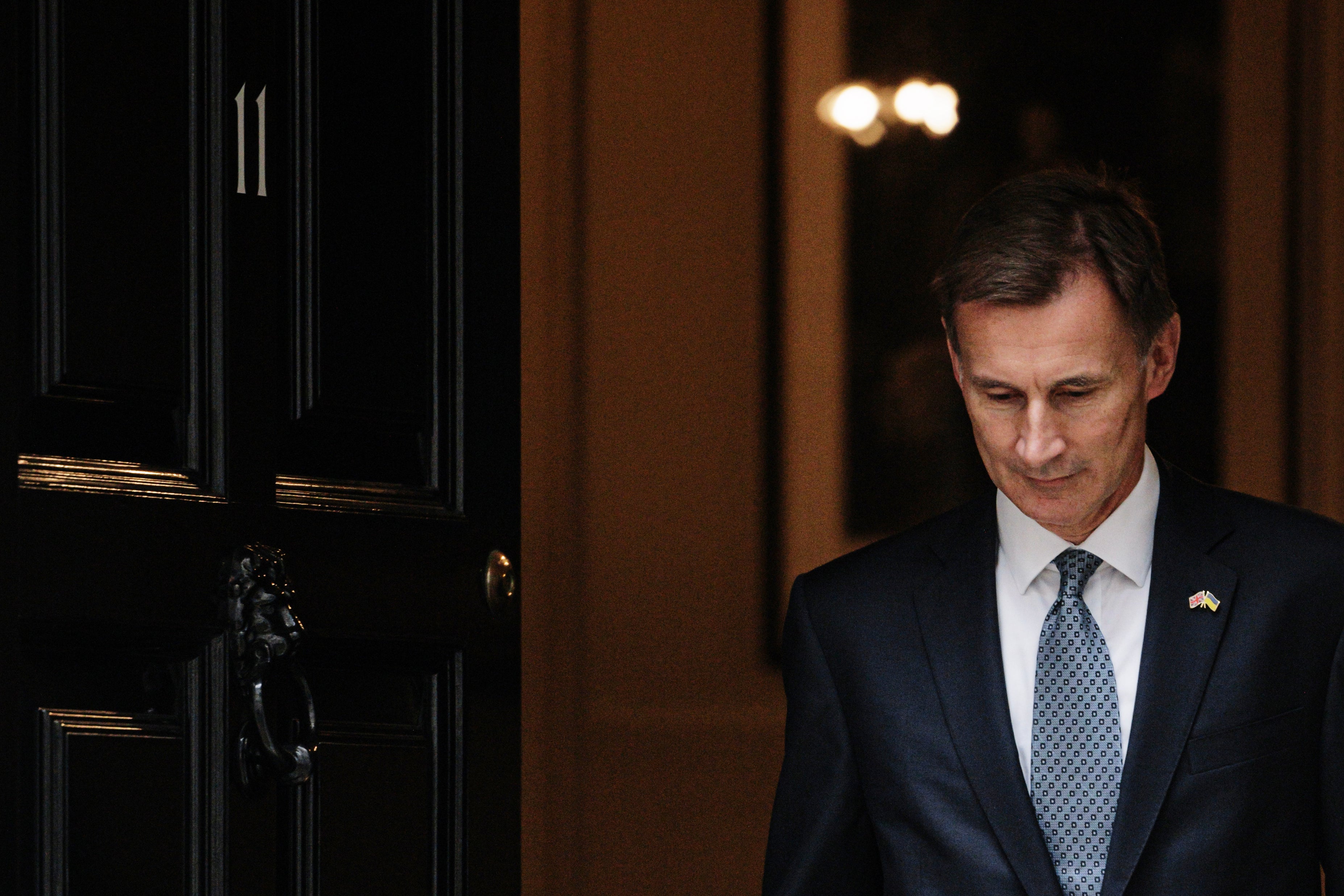Jeremy Hunt’s promise to remove barriers to EU trade was a big moment
The chancellor said something highly significant in one of his interviews after the autumn statement, writes John Rentoul


During Jeremy Hunt’s round of interviews the morning after the autumn statement, the chancellor was asked about one of the reasons that Britain’s economy has grown less than those of other countries: Brexit.
Did he accept that making trade with the EU more difficult had suppressed growth? He said: “I think having unfettered trade with our neighbours and countries all over the world is very beneficial to growth.” But he didn’t leave it there.
One of the refreshing things about Hunt is that he is experienced enough, and confident enough, to answer questions rather than simply repeating the “line to take”. So he went on: “I have great confidence that over the years ahead we will find, outside the single market, we are able to remove the vast majority of the trade barriers that exist between us and the EU.”
That is a significant ambition. At one level, it could be read as Boris Johnson-style cakeism, in wanting to have the advantages of the single market while not being part of it. But given that we have now seen, after nearly two years outside the single market (we left at the end of the transition period on 1 January 2021), how much of a barrier to trade Brexit has created, it feels as if Hunt was saying something more important.
Perhaps he was being reckless, as a former Remainer, in provoking his own party – parts of which are already in a state of incipient revolt against his centrist Budget – but the rest of us should welcome a leading member of the government being prepared to engage with the problems of Brexit.
He made it clear that the UK would stay out of the single market, and said that “people have voted” for Brexit, so “we must make a great success” of it. But this was the first time that a minister has even hinted that any aspect of the Brexit treaties, apart from the Northern Ireland protocol, might be up for revision.
The big picture is that what I call “the Hamish McRae position” is where the UK was always likely to end up. Our brilliant economics commentator once said that the UK would probably move from being “half in” the EU to being “half out”. The problem with Johnson’s Brexit is that he took us completely out, at a significant cost to our economy.
There was a “half out” solution on the table, negotiated by Theresa May, but a chunk of her MPs wouldn’t vote for it, and Labour MPs refused to do what they should have done in the national interest. Her deal would have kept us out of the EU’s political structures, and outside the free movement area, while reducing trade friction between the UK and the EU by keeping us, in effect, in a customs union.
Something like May’s compromise is where we should end up if sense prevails. If Hunt is prepared to debate it, he should be praised to the skies.
Yours,
John Rentoul
Chief political commentator



Join our commenting forum
Join thought-provoking conversations, follow other Independent readers and see their replies
Comments